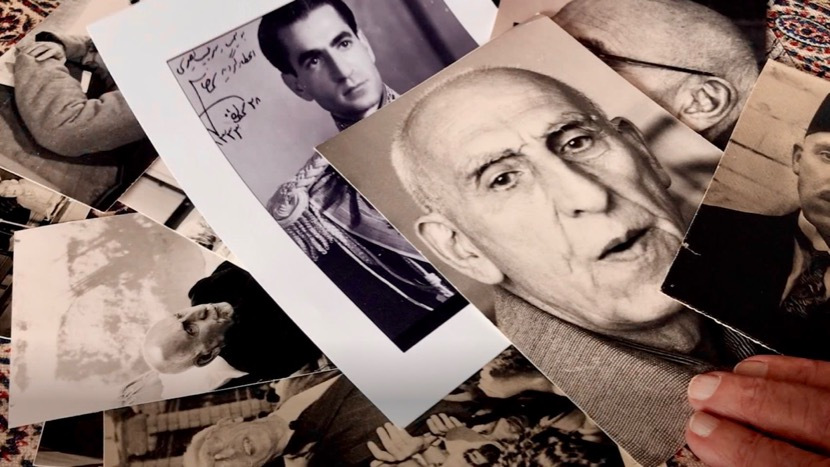Framed as a ticking clock political thriller, Iranian director Taghi Amirani’s documentary “Coup 53” plays as an enthralling look at the 1953 overthrow of Iranian Prime Minister Mossadegh by U.S. and U.K. intelligence agencies, in an effort to reinstate the Shah, a figure who was sympathetic to US and British oil interests in the region. Mixing traditional documentary talking-heads with Amirani’s own self-reflexive efforts to make the film, “Coup 53” is a thrilling film that contextualizes a major historical event through a global and personal lens.
READ MORE: The Best Documentaries Of The Decade [2010s]
Beginning with Amirani’s own voice over, as he recounts the protracted effort to make the film, “Coup 53” initially begins as a portrait of an obsessed artist, as Amirani searches through archives in an effort to find the hidden players behind the US and British efforts to undermine Iran’s first democratically elected leader, Mohammad Mosaddegh. While the US had already admitted to planning and supporting the coup d’état, England still denies involvement, despite CIA documents that name British counterparts in the multinational effort. After years of sifting through redacted documents where the film jumps around through years of efforts, Amirani finally stumbles upon a major player in British intelligence, the elusive Norman Darbyshire.
If the first half of “Coup 53” is filtered through Amirani’s obsessive efforts to find the figures behind the coup, once Amirani uncovers an interview transcript with Darbyshire, from an outtake of a BBC program about the British empire no less, the films switches to explaining, in fascinating detail, how exactly the CIA and MI6 toppled a popular leader. Darbyshire, it seems, was a central architect of the coup, with M16 taking the lead in planning and the CIA lending support, a fact that the U.K. had tried to obfuscate. Yet, despite having a transcript of Darbyshire’s interview with journalists in which the spy lays out in full detail how the coup was planned, Amirani still cannot track down the actual figure.
What may seem as a glaring omission in the film is actually “Coup 53’s” greatest strength. Instead of relying on historical footage, Amirani has the actor Ralph Fiennes brilliantly reenact Darbyshire’s interview. Fiennes is seen preparing for the role, as he asks the original cameraman to explain any eccentricities the spy may have had. If the first half of the film is concerned with tracking down any information about Darbyshire they can find, once Fiennes sits down to recreate the interview, Amirani recedes into the background as the intricate planning of the actual coup d’état takes over.
The second half of “Coup 53” plays as a much more traditional documentary, intermixing talking heads with realistically animated reenactments. While this half threatens to become too invested in the minutiae of the overthrow, it is nonetheless a fascinating exploration of how intelligence agencies took over foreign policy after WWII. Step by step, Amirani takes us through how Mosaddegh was overthrown.
If all these meta-textual elements seem initially overwhelming, they instead create fascinating narrative layers, coalescing around a filmmaker’s quest to understand the history of his country. Amirani’s obsession drives the picture, whether he is the protagonist (as he is early on) or off-screen interviewer, in the second half. Alongside him is film editor, and perhaps one of the biggest names attached to the film, Walter Murch. While Murch is only onscreen for a short amount of time, his presence is felt, mainly through his live-wire editing once the coup begins. Fiennes, at this point, is treated as any other interview subject, walking viewers through the process.
Fiennes’ presence is both jarring and important to Amirani’s treatment, as the redacted elements of the CIA and MI6’s approach are just as essential as the information we do know. In trying to present a complete picture of spies, something is always going to be obscured. Amirani has crafted a compelling recounting of a concealed historical event, shedding light on how America and England protect their investments. Eventually, when the film jumps ahead to Iranian relationships with Trump, it’s an unsurprising flash-forward. For a nation that values democracy, as Amirani argues, we are immensely uncomfortable with other countries adopting our framework if it goes against our economic interests. “Coup 53” is a live-wire thriller that is one of the best documentaries of the year. [A]





